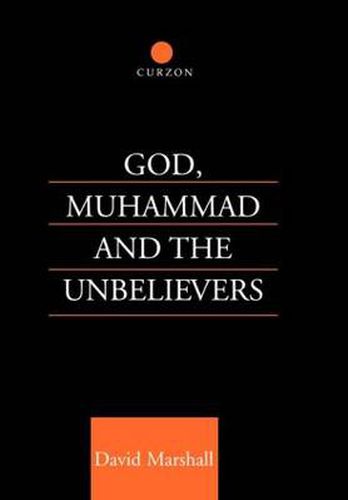Readings Newsletter
Become a Readings Member to make your shopping experience even easier.
Sign in or sign up for free!
You’re not far away from qualifying for FREE standard shipping within Australia
You’ve qualified for FREE standard shipping within Australia
The cart is loading…






This study of the Qur'an arises from an interest in a pressing contemporary issue, the relationship between Muslims and non-Muslims (‘the Ummah and the Other’). It explores how the Qur'an comments on this relationship as it changed in the course of Muhammad’s ministry. Particular attention is paid to the portrayal in the Meccan ‘punishment-narratives’ of a fascinating and complex triangular relationship between God, the powerless and persecuted believing community with Muhammad at its centre, and the unbelieving Meccans who rejected Muhammad’s preaching. These narratives assume that the punishment of the unbelievers in this world is the responsibility of God alone, as in the days of Noah, Lot, Moses and other forerunners of Muhammad. The prophet is simply to preach and be patient. However, with the Hijrah and the beginning of armed conflict, the Meccan situation is left behind and in Medinan passages this triangular relationship is quite differently configured, with the Ummah becoming God’s chosen instrument for punishing the unbelievers of this world. The study considers the wider impact of this development as it is registered in the Qur'an. In two brief afterwords questions are raised about the possible contemporary relevance of this analysis, focusing firstly on discussions about the appropriate models for Islamic society today, and secondly on dialogue between Christians and Muslims. This book presents a detailed and illuminating analysis of many important Qur'anic themes and passages, and offers a coherent and original account of significant developments within the thought of the Qur'an as a whole.
$9.00 standard shipping within Australia
FREE standard shipping within Australia for orders over $100.00
Express & International shipping calculated at checkout
This study of the Qur'an arises from an interest in a pressing contemporary issue, the relationship between Muslims and non-Muslims (‘the Ummah and the Other’). It explores how the Qur'an comments on this relationship as it changed in the course of Muhammad’s ministry. Particular attention is paid to the portrayal in the Meccan ‘punishment-narratives’ of a fascinating and complex triangular relationship between God, the powerless and persecuted believing community with Muhammad at its centre, and the unbelieving Meccans who rejected Muhammad’s preaching. These narratives assume that the punishment of the unbelievers in this world is the responsibility of God alone, as in the days of Noah, Lot, Moses and other forerunners of Muhammad. The prophet is simply to preach and be patient. However, with the Hijrah and the beginning of armed conflict, the Meccan situation is left behind and in Medinan passages this triangular relationship is quite differently configured, with the Ummah becoming God’s chosen instrument for punishing the unbelievers of this world. The study considers the wider impact of this development as it is registered in the Qur'an. In two brief afterwords questions are raised about the possible contemporary relevance of this analysis, focusing firstly on discussions about the appropriate models for Islamic society today, and secondly on dialogue between Christians and Muslims. This book presents a detailed and illuminating analysis of many important Qur'anic themes and passages, and offers a coherent and original account of significant developments within the thought of the Qur'an as a whole.